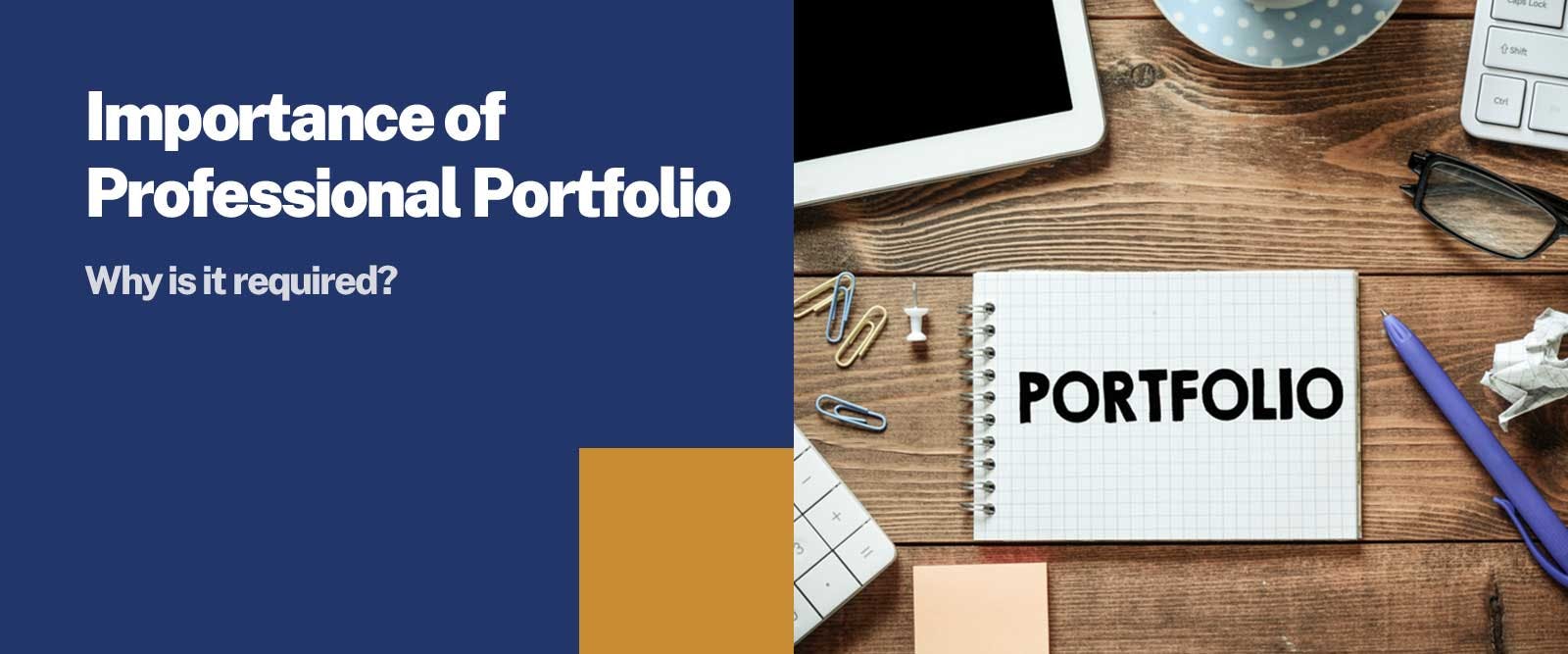5800 students unlocked their dream jobs with UG/PG programs in top colleges. Apply Now!
In today's competitive job market, it's more important than ever to stand out from the crowd. One way to do this is by creating a professional portfolio that showcases your skills, experience, and accomplishments. For any graduates, be they from the BBA program, MBA program, or even B. Tech programs knowing the importance of a professional portfolio is essential for several reasons. It is a powerful tool for students who want to differentiate themselves in a competitive job market.
What is Professional Portfolio?
A portfolio is a collection of documents, projects, and other materials that demonstrate your capabilities as a business professional. It is a tangible representation of your career and serves as a visual and concrete way to showcase your work to potential employers, clients, or colleagues.
It can include a variety of items, such as your resume, educational certificates, awards and honours, work samples, projects, case studies, client testimonials, and any other relevant documents that demonstrate your expertise and capabilities.
The purpose of a professional portfolio is to provide a comprehensive view of your professional growth and development, as well as to showcase your skills and accomplishments. It can be used as a tool for job applications, performance evaluations, promotions, networking, or to simply document your progress in your career.
Benefits of Having a Professional Portfolio
There are several benefits of having a professional portfolio, including:
- Showcasing your skills and accomplishments: It provides a platform to showcase your skills, accomplishments, and experience. By presenting your work samples, projects, case studies, and other relevant documents, you can demonstrate your expertise and capabilities to potential employers or clients.
- Setting you apart from the competition: A well-designed professional portfolio can set you apart from the competition. It can demonstrate your dedication to your field, your attention to detail, and your commitment to ongoing learning and development.
- Enhancing your credibility: It can enhance your credibility and reputation as a professional. It can provide third-party approval, that demonstrates your value and expertise.
- Encouraging ongoing learning and development: Creating and maintaining a professional portfolio can encourage ongoing learning and development. It can motivate you to seek out new challenges, projects, and experiences to add to your portfolio and improve your skills.
- Networking: A professional portfolio can serve as a networking tool. It can be shared with colleagues, mentors, or potential employers, and used to initiate conversations, showcase your work, and establish connections.
Components of a Professional Portfolio
The components of a professional portfolio may vary depending on your field of work and career goals. However, here are some common components that you may consider including in your portfolio:
- Cover Page: It can be used to introduce yourself, your contact information, and the purpose of your portfolio. It should be visually appealing and professional.
- Resume: A well-designed resume that highlights your work experience, education, skills, and achievements should be included in your portfolio.
- Professional Development: This section should highlight your professional development, such as conferences, workshops, and training sessions that you have attended. It should showcase how you have continued to learn and improve your skills.
- Work Samples: This is a crucial component of a professional portfolio that demonstrates your capabilities and expertise. Include examples of your best work, such as reports, research papers, or presentations
- Awards and Recognition: This section should include any awards, recognitions, or honours you have received throughout your career. This will help highlight your achievements and credibility.
Tips to Create a Professional Portfolio
Here are some tips to create a professional portfolio:
- Decide on the format of your portfolio based on your purpose and audience. Choose a format that is easy to navigate and visually appealing.
- Organise your content into sections, such as a cover page, resume, work samples, awards, and testimonials. Organising your content will make it easier for your audience to find what they are looking for.
- Only include content that is relevant and showcases your strengths and expertise. This will help you make a strong impression and stand out from the competition.
- Keep your portfolio concise and to the point. Avoid including too much information or irrelevant details.
- Regularly update your portfolio with new work samples. Keeping your portfolio up to date will help you stay current and relevant in your field.
About Sunstone
With Sunstone you can build a professional portfolio, improving your chances of getting hired. You get 70+ masterclasses from recruiters and industry experts. Apart from that, you also get to work on a capstone project every semester and have lifetime access to a pan-India student community. With us, you learn from expert guest faculties who are ex-IIMs and IITs. So, get admission to a leading college powered by Sunstone for your MBA program and unlock the dream of getting placed in metro because 70% of job opportunities offered are from metro cities.
HELP
Take the first step towards your dream job.
ABOUT THE AUTHOR

